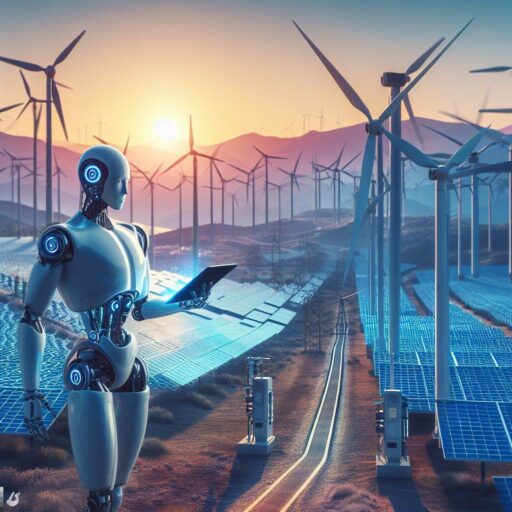As the world grapples with the imperative of sustainable energy, artificial intelligence (AI) emerges as a transformative force in reshaping the landscape of the energy sector. This article explores the dynamic trends and innovative applications that signify the future of AI in revolutionizing how we produce, distribute, and consume energy.
AI-Powered Grid Optimization:
One of the most impactful applications of AI in the energy sector is grid optimization.
Imagine a neural network seamlessly managing the flow of electricity across the grid, intelligently balancing supply and demand, minimizing inefficiencies, and ultimately reducing energy wastage.
By leveraging machine learning algorithms, grids become self-aware entities, adapting in real-time to fluctuations in energy consumption and renewable energy production. This not only enhances overall grid reliability but also paves the way for a more sustainable and responsive energy infrastructure.
Predictive Maintenance for Renewable Assets
Renewable energy sources, such as solar and wind, are pivotal in our shift towards a greener future. AI, through predictive maintenance, plays a key role in ensuring the optimal performance of these assets.
Visualize a dynamic chart predicting the health of solar panels or wind turbines, allowing for proactive maintenance measures that minimize downtime and extend the lifespan of renewable energy installations.
By analyzing data on equipment performance and environmental conditions, AI algorithms forecast potential issues, empowering energy companies to address maintenance needs before they escalate. This not only increases the efficiency of renewable energy production but also contributes to a more reliable and resilient energy grid.
Energy Consumption Forecasting
AI’s ability to analyze vast datasets makes it an invaluable tool for forecasting energy consumption patterns.
Envision a graph depicting predicted energy demand trends, allowing energy providers to anticipate peak usage periods and optimize energy distribution accordingly.
This foresight enables more efficient resource allocation, reduces the risk of energy shortages, and facilitates better demand response strategies. AI-driven forecasting not only ensures a stable energy supply but also contributes to cost savings and environmental sustainability.
Smart Energy Management Systems
In the era of smart homes and IoT devices, AI is instrumental in creating intelligent energy management systems.
Picture a visualization where AI algorithms seamlessly regulate home appliances based on real-time energy prices, consumption patterns, and environmental factors.
These systems empower consumers to make informed decisions about their energy usage, promoting energy efficiency and cost savings. As AI continues to advance, smart energy management will play a crucial role in creating sustainable and interconnected energy ecosystems.
Enhanced Exploration and Production in the Oil and Gas Industry
In the traditional energy sector, AI is reshaping how oil and gas companies approach exploration and production. Visualize a simulation where AI algorithms analyze geological data, optimize drilling processes, and predict potential oil reservoirs, enhancing efficiency and reducing environmental impact.
By automating complex tasks and providing real-time insights, AI accelerates decision-making in exploration and production activities. This not only improves operational efficiency but also contributes to minimizing the ecological footprint of the oil and gas industry.
Conclusion
The future of AI in the energy sector is a convergence of innovation, sustainability, and efficiency.
Envision a landscape where AI-powered technologies drive a cleaner, more resilient energy future. As we embrace these trends and applications, the symbiotic relationship between AI and the energy sector promises a future where intelligent solutions catalyze the transition to a sustainable and technologically advanced energy landscape.
In closing, the integration of AI into the energy sector is not just a technological evolution; it’s a pivotal step towards shaping a future where energy is not only abundant but also conscientiously managed, paving the way for a sustainable and eco-friendly tomorrow.

